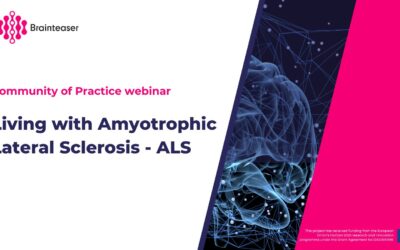On November 16th, the 17th Conference on Computational Intelligence Methods for Bioinformatics and Biostatistics (CIBB 2021) hosted the Special Session “Artificial Intelligence and Statistical Methods for Neurodegenerative Diseases”. The special session was organized and chaired by Martina Vettoretti, Enrico Longato, and Erica Tavazzi, three young researchers of the Department of Information Engineering of University of Padova (Padova, Italy) and members of the BRAINTEASER Consortium. The conference had an international audience of researchers in the field of information technologies applied to healthcare. Due to the Covid-19 pandemic, the conference took place virtually.
The session was opened by Dr. Vettoretti who welcomed the participants, presented the session chairs, introduced the Brainteaser project which supported the organization of the special session, and presented the agenda of the session. The session included 13 scientific presentations, of 15 minutes each, followed by 5 minutes of questions and answers (Q&A). Notably, four presentations were provided by members of the BRAINTEASER Consortium (Isotta Trescato, University of Padova; Erica Tavazzi, University of Padova; Andreia S. Martins, Faculty of Sciences of the University of Lisbon; Fianne Sips, InSilicoTrials Technologies).
The first part of the session, chaired by Dr. Vettoretti, focused on cutting-edge methodologies for supporting the assessment of cognitive impairment and the diagnosis of dementia and Alzheimer disease. The second part of the session, chaired by Dr. Longato, included interesting applications of advanced techniques (e.g., non-linear clustering, archetypal analysis and process mining) for the stratification of patients with Parkinson disease or Amyotrophic Lateral Sclerosis (ALS). An innovative technology for the detection of oro-facial impairments in patients with neurological diseases was also presented. Finally, the last part of the session, chaired by Dr. Tavazzi, included brilliant contributions about the prediction of ALS progression, the identification of Multiple Sclerosis (MS) risk factors, and a simulation model for performing in silico clinical trials on MS patients.
Overall, this special session raised great interest in the field, as demonstrated by the high number of high-quality original contributions received and the session attendance. The session was attended by about 50 live participants who stimulated an interesting discussion of the presented works and their future development during the Q&A slots. The recordings of all the talks have been made available on the conference platform for offline consultation. The speakers are now invited to submit a manuscript on their work to a journal supplement in BMC Medical Informatics and Decision Making, which will be guest-edited by the special session organizers. Further information of the session and the upcoming related publications can be found on the conference website.




